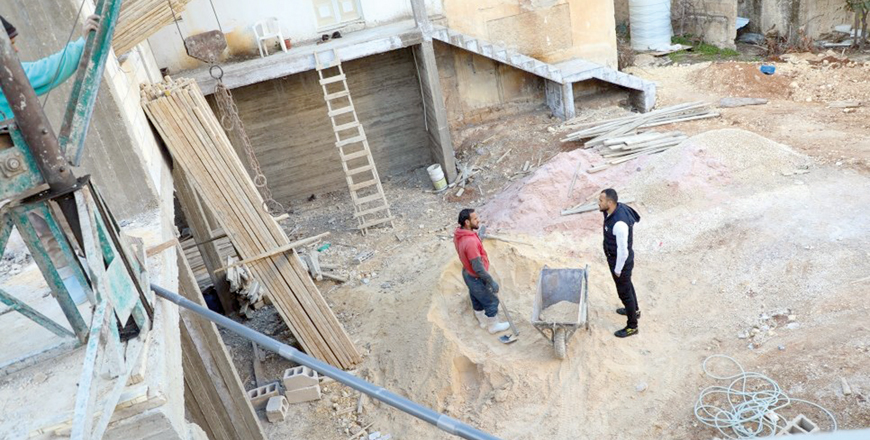AMMAN — UNHCR, the UN Refugee Agency, on Tuesday welcomed the progress achieved in Jordan in including Syrian refugees in the country’s labour market.
In 2021, a record 62,000 work permits were issued to Syrians, the highest annual number since work permits for Syrian refugees were introduced, according to figures published by the government and UNHCR.
Syrian refugees have been permitted to work in several sectors of Jordan’s economy since 2016, after the international community committed funding and expanded trade facilitation under the Jordan Compact, an initiative to improve access to education and legal employment for Syrians forced to flee their homes, said a UNHCR statement.
“Refugees can play a significant role in the Jordanian economy, and so they should,” UNHCR Representative in Jordan Dominik Bartsch said in the statement.
“Allowing refugees to work also reduces the need for humanitarian aid, like cash grants, which could be channeled to support the most vulnerable among them,” he added
Jordan hosts 760,000 refugees and asylum seekers registered with UNHCR. Of those, some 670,000 are from Syria, making Jordan the No. 2 host of Syrian refugees per capita globally behind Lebanon.
The 62,000 work permits include 31,000 flexible ones – also a record – which allow refugees to move between similar jobs in the same sector, as well as among employers and governorates, the statement said.
The initiative puts Jordan at the forefront of global efforts to give both refugees and host communities access to work, as promoted by the Global Compact on Refugees (GCR).
A recent UNHCR report on progress in indicators under the GCR showed that many refugees still lack access to decent work. Globally, only 38 per cent of refugees live in countries with unrestricted access in practice to formal employment, including wage-earning jobs or self-employment.
“Even in countries with laws allowing refugees to work, getting a job is often very difficult, especially with high unemployment rates in host countries,” said UNHCR’s Regional Director for the Middle East and North Africa Ayman Gharaibeh.
“The devastating impact of COVID-19 on host economies is another obstacle for refugees trying to access the labour market. Increased support to host countries is critical to help economies recover, and that would make it easier for refugees to work,” he noted.
Previously, Syrian refugees in Jordan were mostly allowed to work only in agriculture, construction and manufacturing. Last year, some were given exemptions to work in other sectors, including as healthcare professionals to help fight COVID-19. Since July 2021, Syrian refugees have been able to get work permits in all sectors open to non-Jordanians.
As Jordan rebuilds from the pandemic, UNHCR is committed to keep working with its partners and the authorities to increase employment opportunities for refugees and Jordanians alike, the statement said.
“With the pressing need to support Jordan’s economic recovery from COVID, it’s great to see more refugees than ever being able to contribute,” added Bartsch.
However, Jordan has an unemployment rate of 23 per cent, and many refugees who hold work permits still struggle to find jobs and support their families, and only Syrian refugees in Jordan are legally allowed to work.
Those from other countries, including Iraq, Yemen, Sudan and Somalia, are not able to apply for permits. UNHCR Jordan is advocating for non-Syrian refugees to also be given the opportunity to work, concluded the statement.
